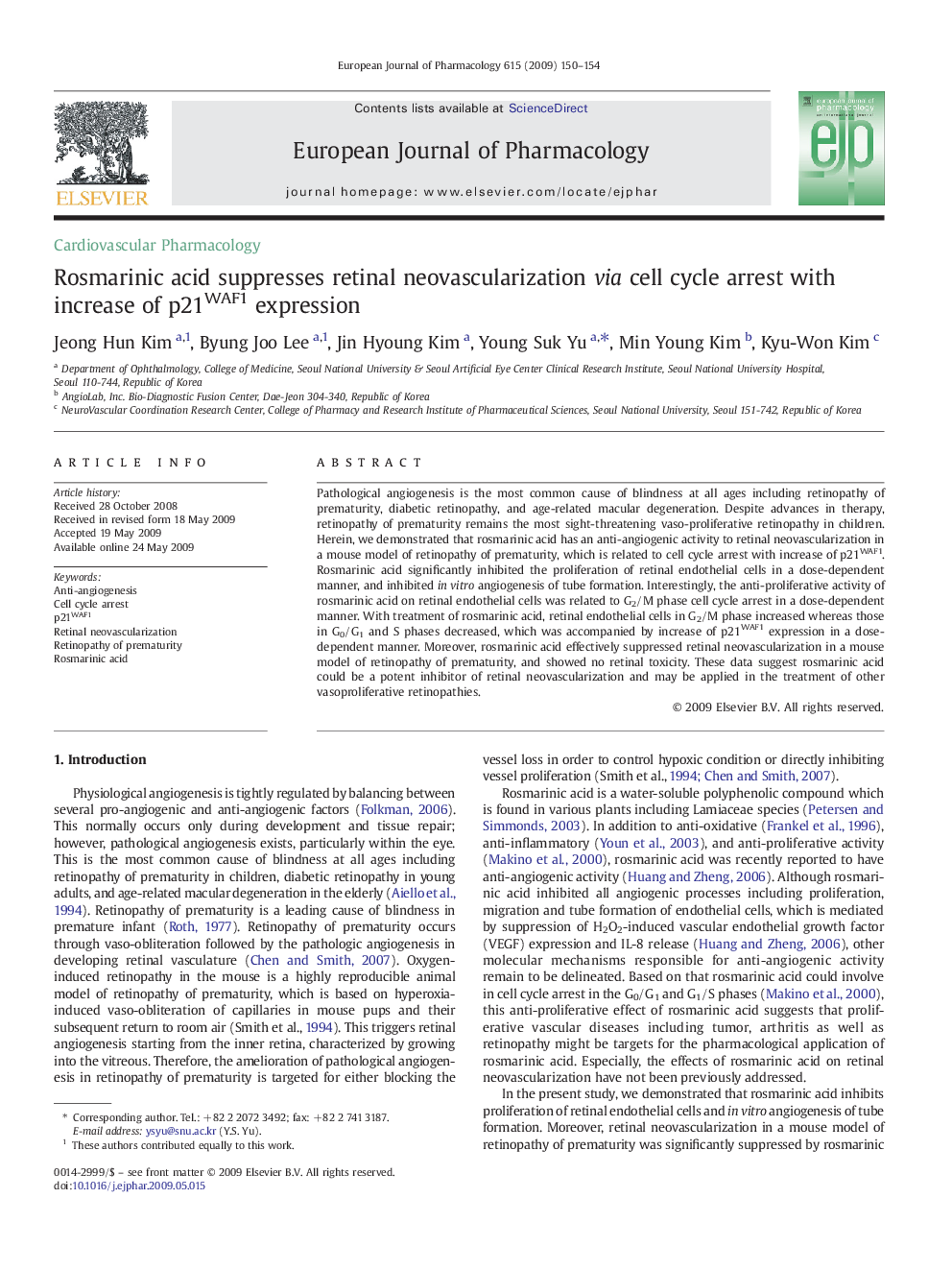| Article ID | Journal | Published Year | Pages | File Type |
|---|---|---|---|---|
| 2534218 | European Journal of Pharmacology | 2009 | 5 Pages |
Pathological angiogenesis is the most common cause of blindness at all ages including retinopathy of prematurity, diabetic retinopathy, and age-related macular degeneration. Despite advances in therapy, retinopathy of prematurity remains the most sight-threatening vaso-proliferative retinopathy in children. Herein, we demonstrated that rosmarinic acid has an anti-angiogenic activity to retinal neovascularization in a mouse model of retinopathy of prematurity, which is related to cell cycle arrest with increase of p21WAF1. Rosmarinic acid significantly inhibited the proliferation of retinal endothelial cells in a dose-dependent manner, and inhibited in vitro angiogenesis of tube formation. Interestingly, the anti-proliferative activity of rosmarinic acid on retinal endothelial cells was related to G2/M phase cell cycle arrest in a dose-dependent manner. With treatment of rosmarinic acid, retinal endothelial cells in G2/M phase increased whereas those in G0/G1 and S phases decreased, which was accompanied by increase of p21WAF1 expression in a dose-dependent manner. Moreover, rosmarinic acid effectively suppressed retinal neovascularization in a mouse model of retinopathy of prematurity, and showed no retinal toxicity. These data suggest rosmarinic acid could be a potent inhibitor of retinal neovascularization and may be applied in the treatment of other vasoproliferative retinopathies.
